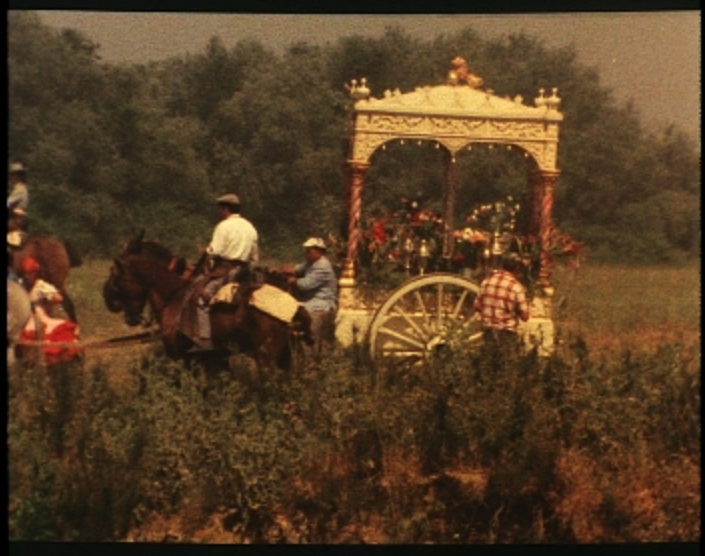Rocío
↳ Fernando Ruiz Vergara

ES 1980, 01:20:00
Selected and presented by Alejandro Alvarado & Concha Barquero
We met Fernando Ruiz Vergara in the summer of 2010, a year before his death in a small Portuguese village. We went there with the purpose of interviewing the director of the film Rocío (1980) for an academic research on censorship in documentary film. The case of Ruiz Vergara’s film is paradigmatic and unusual. This documentary on the most famous religious pilgrimage in the Iberian Peninsula was judicially seized in the midst of democracy, in 1981, and the work and its author were subsequently subjected to a trial with devastating consequences for both. The accusation for slander and offence against honour was based on a complaint by the relatives of a resident of Almonte (Andalusia), who was identified in the documentary as the ringleader of fascist repression in the town. The court ruling forced three cuts from the original footage of Rocío. Today, forty years after the trial, the screening of the complete film is still banned throughout Spain. For his part, Fernando Ruiz Vergara never directed a film again.
For many, including ourselves, Ruiz Vergara’s only finished work is more than that cursed, banned and censored film. It is also a rare, powerful, coarse and carnal film but, above all, coherent with its author’s vision of the world. Rocío continues to highlight issues that we consider essential as citizens and filmmakers, such as freedom of expression, historical memory and the unresolved issues of our recent past, priorities in the public sphere that we feel committed to working on. After four decades, Rocío continues to swim against the tide and reminds us of the power of its necessary discordant voice.